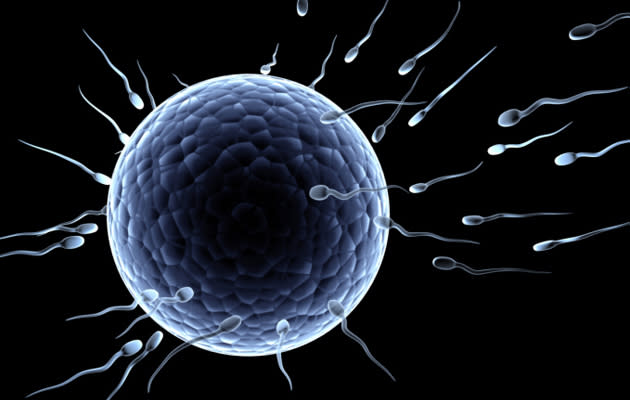 Fit to Post Health
Fit to Post HealthWhy should you consider donating your sperm

To set the record straight: No, you can't score some quick cash by donating your sperm for artificial insemination. At least, this is not the usual practice in Singapore.
Donors will only be given a small token as transport allowance, says Dr Hemashree Rajesh, Consultant, Department of Obstetrics & Gynaecology, Singapore General Hospital (SGH).
In any case, money shouldn't be a motivation for sperm donation. After all, there are more altruistic reasons to do so.
"Many couples long for a baby but they can't have one," explains Dr Rajesh. "A significant number of men have very poor quality sperm or a low sperm count. There are also some men who harbour genetic defects."
Sperm donation is a non-invasive procedure that can help these childless couples. "It is as ethically commendable as other donations," states Dr Rajesh.
Related article: How to optimise your sperm count?
To donate or not to donate?
There is a lack of awareness about sperm donation here. Dr Rajesh says: "Unlike blood donation and stem cell donation, sperm donation is not advertised in Singapore."
Also, donors have to fulfil certain criteria, such as being in tip-top health. Dr Rajesh says: "Due to fear of the unknown, some men are reluctant to undergo the medical examination. Others are unable to clear the screening process."
Then there are ethical and psychological concerns behind the act. She explains: "For instance, the donor may already be married with children and there could be a fear of their children being matched with offspring from sperm donation in the future, resulting in incest."
In reality, these fears are largely unfounded. "In our globalised society, it's more likely that these offspring will end up finding their partners elsewhere in the world," says Dr Rajesh. In addition, not every donation results in a live birth.
Related article: Health screening — why it's a must for all men
How many times can one donor's sperm be used?
In the United Kingdom, the sperm of a donor can be used to establish a maximum of 10 families.
Meanwhile, in the United States, the American Society for Reproductive Medicine recommends that the limit be based on the population from which the donor is selected. For instance, in a population of 800,000, no more than 25 pregnancies should be conceived from the sperm of a single donor.
Dr Rajesh adds: "In comparison, the Ministry of Health in Singapore has more conservative guidelines — a donor's sperm is limited to establishing three families only."
So who can donate?
Generally, men who are keen to donate their sperm should not have hereditary diseases or suffer from any medical or mental conditions. Here's the list of criteria for sperm donors:
Healthy men aged between 18 and 40
Single or married
Singapore citizens living in Singapore, permanent residents or foreigners with Singapore employment permits
If not a Singaporean, the potential donor must have lived in Singapore for at least a year
The donor should clear the mandatory health screening process
Related article: The biological clock ticks for men too
How the donation process works
Call the sperm bank to make an appointment. Dr Rajesh observes: "A positive experience leads to word-of-mouth referrals. At the Centre for Assisted Reproduction (Care) at SGH, potential donors call out of their own initiative, without any advertising on our part."
Go through a full body check-up. You will also have to provide your personal health details, as well as information about the health of family members. "The donor will have access to his semen evaluation and his infectious diseases screening results," says Dr Rajesh.
Sign a legal document stating that all the information provided is true, and that you will not pursue the identity of the child who is born from the donated sperm. In fact, you will not even know if your sperm is eventually used for artificial insemination or not.
A month later, the actual donation can be done in the privacy of the home, or at the sperm bank. Donors can only be registered at one sperm bank. Besides SGH, there are two other public hospitals, including KK Women's and Children's Hospital (KKH), with sperm banks within their fertility centres.
A minimum of four to six samples of sperm is required within three months. After six months, these samples will be re-screened for disease. Any infected sperm is of course immediately rejected. Dr Rajesh adds: "At CARE, only 10 donations were accepted between 2008 and 2011, out of the 14 that were offered."
What happens after?
Sperm donation is strictly anonymous — both donor and recipient will never meet. Dr Rajesh says: "The recipient of donor sperm will also never be made aware of donor-related information."
Only you will know that your donation might have helped a childless couple become a family.
On Sunday, 18 Nov, run for a worthy cause — The Run For Hope is back to stomp out cancer! Sign up now for the 3.5km or 10km run along the latest popular running trail around Marina Bay / Kallang River and help raise awareness and much-needed funds for cancer research.
This article was written by Jaclyn Lim for Health Xchange, with expert input from the Department of Obstetrics & Gynaecology, Singapore General Hospital (SGH).
Find more health-related tips and articles on HealthXchange.com.sg, Singapore's trusted health and lifestyle portal.
Health Xchange's articles are meant for informational purposes only and cannot replace professional surgical, medical or health advice, examination, diagnosis, or treatment.

